March 9, 2018
You Made It Happen! Our Strategic Plan After Two Years
Admittedly, I can be pretty ambitious; not so much personally, but for the Ottawa Humane Society as a whole, and what we can achieve for the animals and our community. The OHS five-year strategic plan that was launched in April 2016 is an example of this ambition. This plan was, and remains, a very determined endeavour.
If you are familiar with the plan, in addition to enhancing our core, much of the direction has been divided into six main themes. Within these themes, I wish to share some of the highlights of our accomplishments as we near the plan’s two year mark.
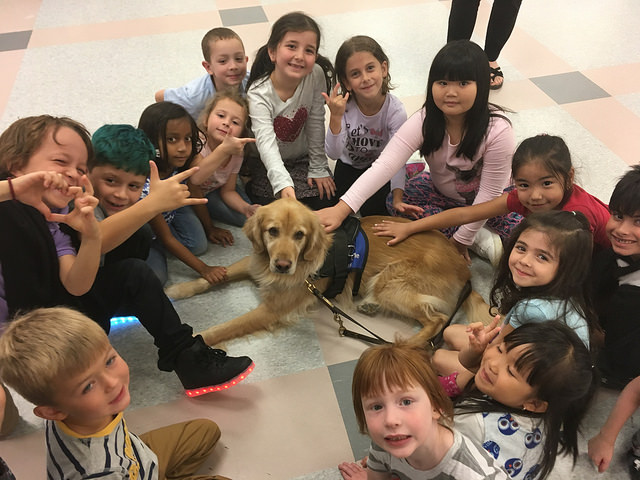
Our Humane Education program has grown in the past two years.
“Building a better future for pets by creating better future pet owners” (Investment in the Next Generation)
We believe that real and sustainable change for animals will happen by way of the next generation. To this end, we have increased our focus on children and youth as the best hope for a more humane community. We have introduced youth tours, school field trips, and a youth counsellor in training program. This is all in addition to significant new efforts and growth in the school humane education program to more than 12,000 students in just two years. To become more inclusive, we introduced humane education in schools in French, along with camps for French-speaking youth. Our French translation is actually ahead of schedule. Beyond our expansion into Canada’s other official language, we have consulted with and begun our outreach to newcomers to Canada, to help them experience the joy of animals in their new adoptive country.
…
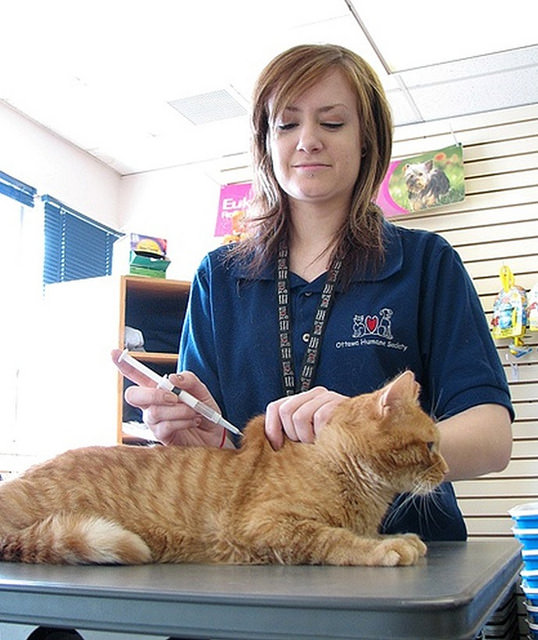
Community programs, such as microchip clinics are reaching hundreds of low-income residents
“Pets belong in homes, not shelters” (Pets in the Community)
In order to truly help all animals, we have to move beyond just the care we provide here at the shelter. There are a lot of animals that need us, and not all of them under our roof. We are very proud to have worked with our partners to convince the city that the time of animals for sale in pet stores is over. Ultimately, the agreement dictates that only rescue animals would be allowed to be adopted in retail establishments starting in 2021. Our first forays into community-based programs: microchip clinics and our Pet Savvy adult education program have reached hundreds of low-income adults with pets and is improving the welfare of the animals in their homes.
…
…
…
…
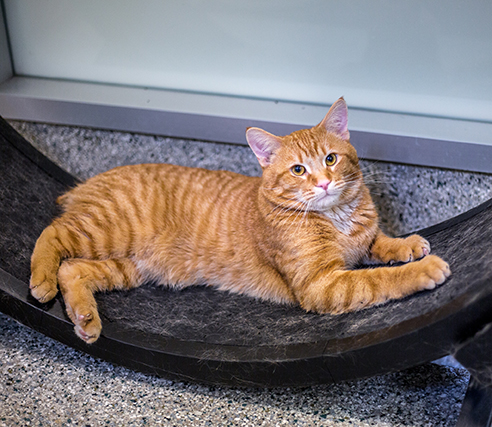
Pumpkin is one of many FIV positive cats adopted from the OHS over the past year
“Good Policies Save Lives” (Ensuring Animal Sheltering Best Practices)
I have always believed that our animal care decisions need to be based on the best research available. Fortunately, in the last few years, animal sheltering research and best practices have become more readily available, and are proving to be very valuable resources. Key among the available materials has been animal care guidelines as issued by the Association of Shelter Veterinarians. A major accomplishment of ours has been the implementation of many hundreds of their recommendations for animal care in shelters.
Additionally, we have introduced enhanced cat enrichment to the shelter and have launched a number of behavior interventions for felines with issues such as house-soiling. We have also developed and launched an orphan kitten program to improve survival rates in this highly vulnerable group. Lastly, we also began to adopt cats and kittens who are FIV+ along with the education and support for adopters taking on these compromised but still loveable felines.
…
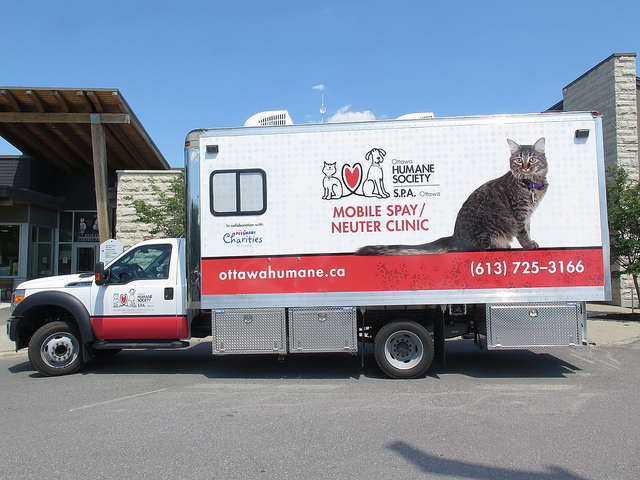
The OHS Mobile Spay/Neuter Clinic is helping to reduce cat overpopulation in Ottawa
“Too many cats will live wretched lives as long as there are too many cats” (Reducing Cat Overpopulation)
To address this heart-breaking problem, the OHS launched our biggest single initiative since the construction of the West Hunt Club shelter: our Mobile Spay/Neuter Clinic. To date, the program has sterilized more than 1,800 felines.
…
…
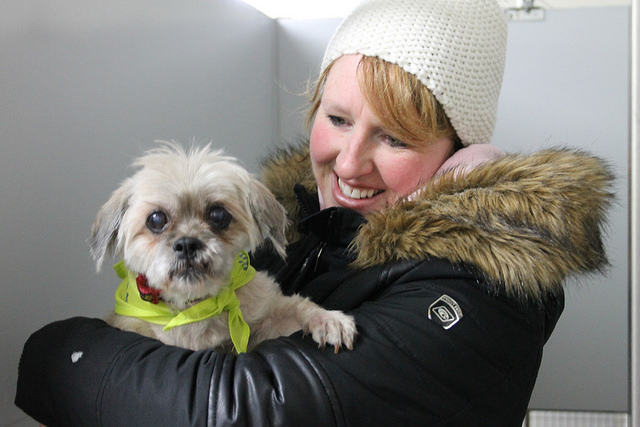
Canine enrichment volunteers provide behaviour intervention to shelter dogs
“We cannot continue to accept canine suffering because they act out” (Dog Behaviour Intervention)
[
In 2017, we launched our new behaviour assessment regime and initiated enhanced enrichment for all the dogs in our care. As part of this, we completely revamped our dog walking program, relaunching it as canine enrichment, and adding levels of training for volunteers to provide behavioural intervention for more challenging dogs. At the same time, we launched intervention plans for dogs with specific problematic behaviours, such as food guarding.
…
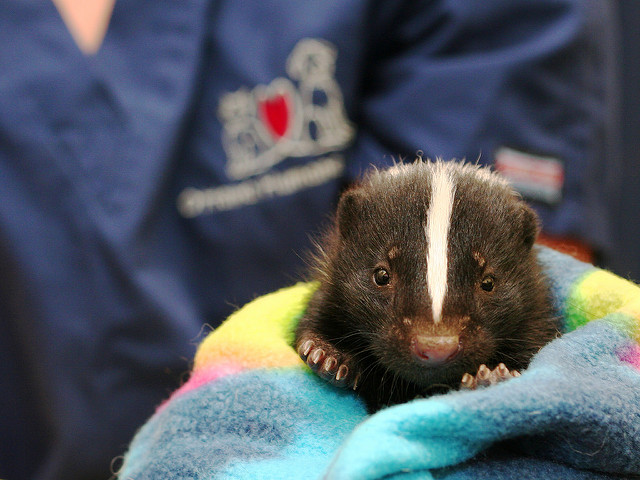
The OHS is strengthening partnerships with groups such as the Rideau Valley Wildlife Sanctuary
“Doing more with less because we are doing it together” (Partnerships and Leverage)
We believe that we can accomplish so much more in partnership than alone, and that our support for national, provincial and local partners makes a difference. To this end, we are much more engaged with our national counterpart, the Canadian Federation of Humane Societies and I have joined the board of the Association of Animal Shelter Administrators of Ontario. We also believe that animals will benefit across the board by actively sharing our knowledge and expertise with other groups. We have a lot to give, and we have given a lot over the past two years. We believe animals will be better off because of the work we have done for groups such as Ottawa Therapy Dogs, the Rideau Valley Wildlife Sanctuary and other, smaller humane societies.
…
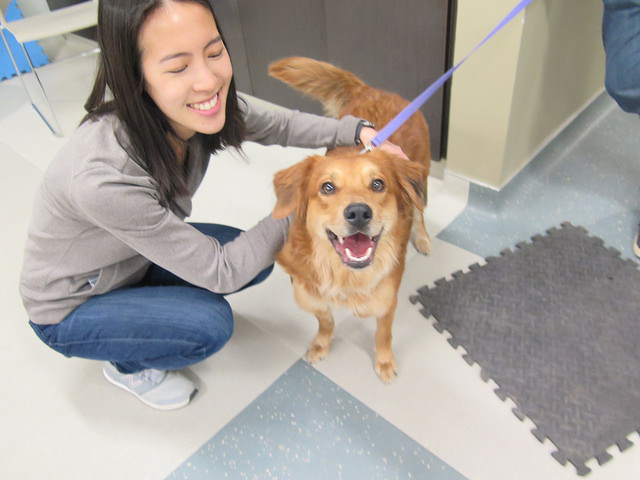
New programs like our Behaving Buddies workshops help raise funds
“Ottawa’s animals need us to ask for them as much as they need us to speak for them” (Investment in Growth)
We have expanded our “business” lines which raise much-needed funds and further animal welfare: more public seminars, more microchip clinics, more and varied camps. Ultimately, it is not ourselves that make all of these accomplishments possible; it is you, our donors and supporters who provide the funds that make it all possible. We are learning to tell our story to inspire both you and our community to help animals in need. To this end, we have made major investments in our PAW monthly giving program, and to tell that story of why animals are important to all of us, and how they are a part of a compassionate and kind community that benefits us all.
Thank you for supporting this ambitious plan. I hope you are proud of what you have accomplished.
Bruce Roney
Executive Director
